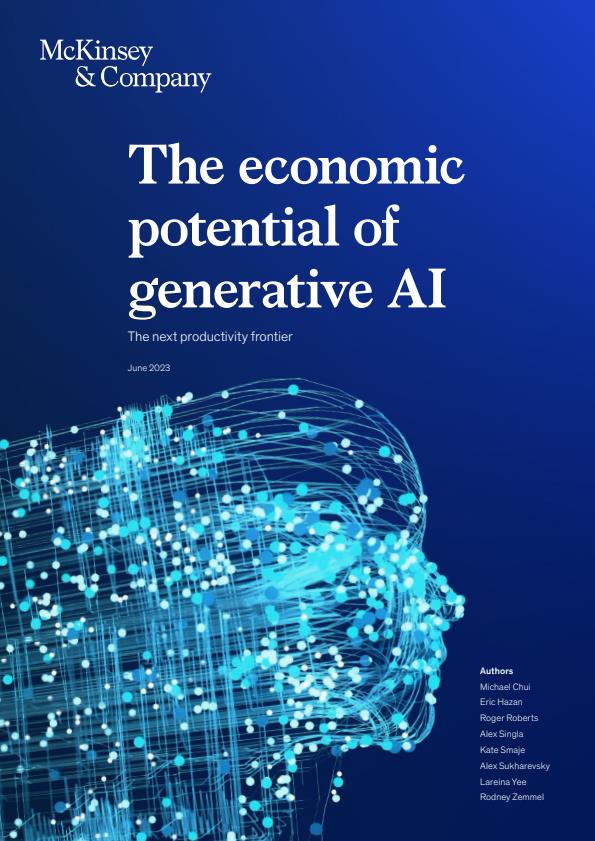Generative AI, a technology with the capability to drive vast economic transformation, is on the brink of reshaping our future. McKinsey’s recent research underlines the sheer magnitude of this shift, suggesting generative AI could add a staggering $2.6 to $4.4 trillion annually across numerous use cases. To put this in perspective, this is akin to adding another United Kingdom in terms of GDP to the global economy.
A significant chunk, about 75%, of the potential value from generative AI stems from its applications in customer operations, marketing and sales, software engineering, and R&D. These applications range from enhancing customer interactions and creating marketing content to drafting code using natural language. Industries poised to reap the most benefits include banking, high-tech, and life sciences, with banking alone seeing potential annual value additions of $200 billion to $340 billion.
But it’s not just about the money. The transformative power of generative AI extends to the very nature of work itself. With its growing proficiency in understanding natural language, generative AI is poised to automate tasks that currently take up to 60-70% of an employee’s time. This acceleration of automation can potentially redefine jobs and lead to faster workforce transformations than previously anticipated.
The promise of boosted labor productivity is also on the horizon. McKinsey suggests that if harnessed correctly, generative AI can drive labor productivity growth rates between 0.1% to 0.6% annually until 2040. Yet, this positive transition demands proactive investments in skill development and reskilling, ensuring the workforce isn’t left behind.
The buzz around generative AI tools like ChatGPT and GitHub Copilot is only the tip of the iceberg. While these tools have garnered significant public attention, McKinsey stresses the importance of understanding the deep-rooted breakthroughs in machine learning and deep learning that have paved the way for today’s AI marvels.
In conclusion, while the era of generative AI has only just begun, its impact will be far-reaching. From reshaping industries to redefining roles, this technology promises to bring about an economic and societal revolution. The challenge now is to harness its potential responsibly, ensuring an inclusive, sustainable, and prosperous future for all.
Find the report here.


